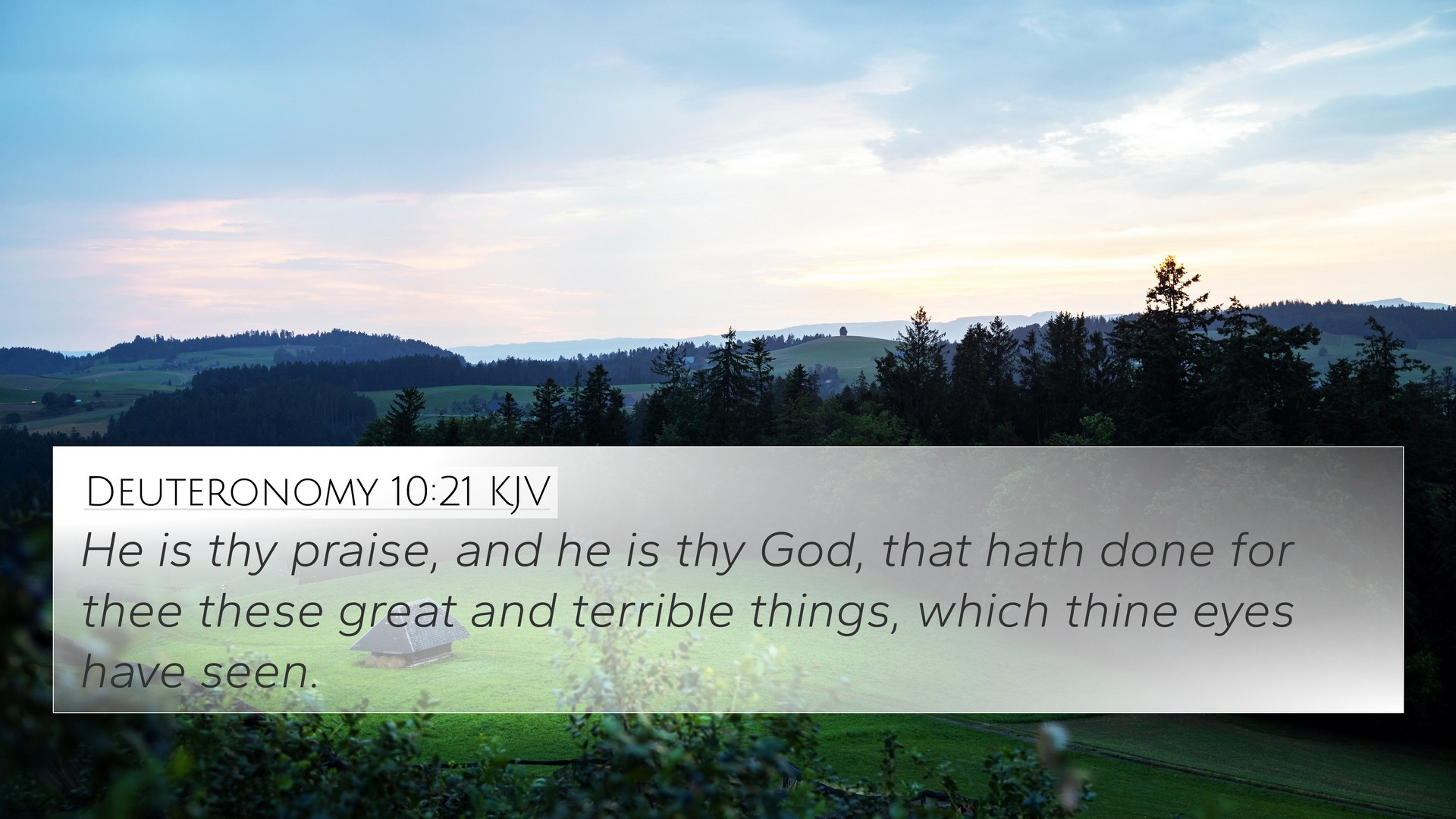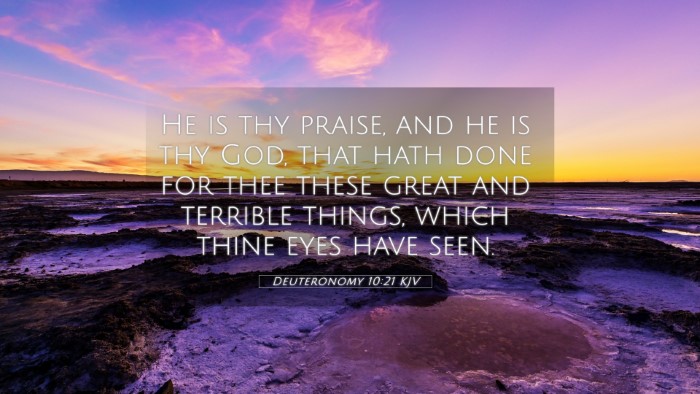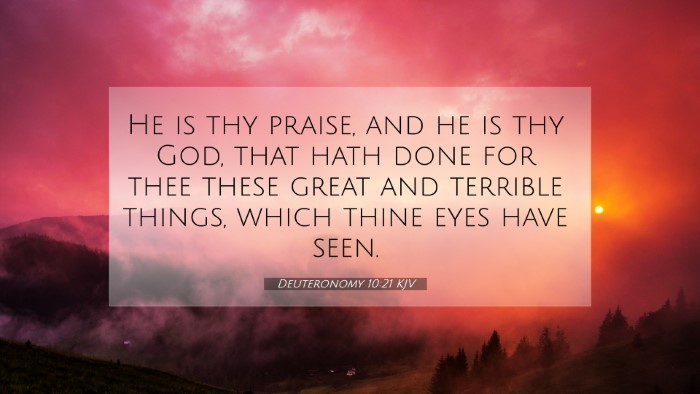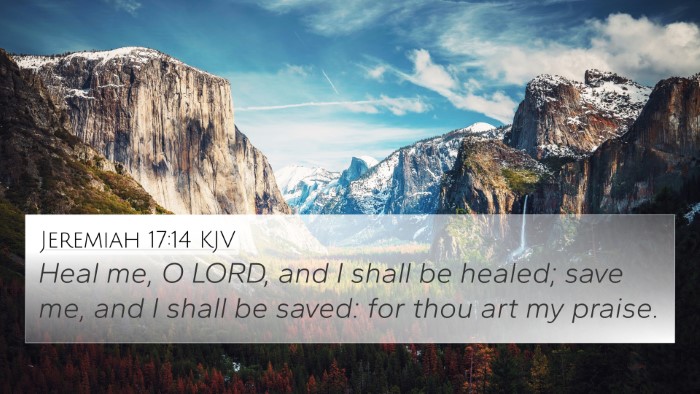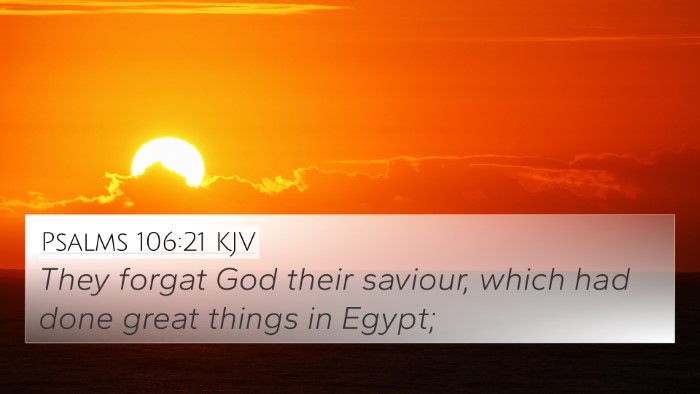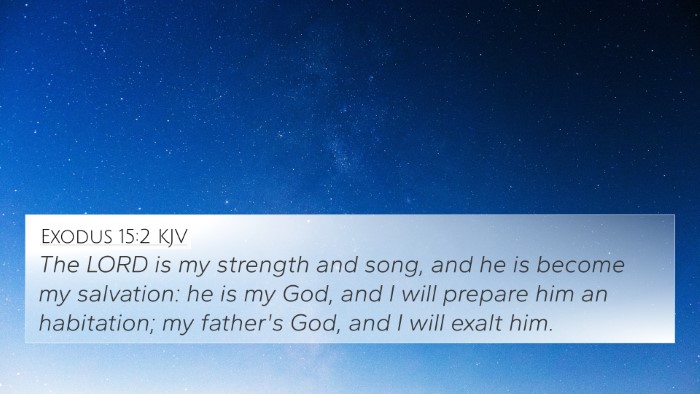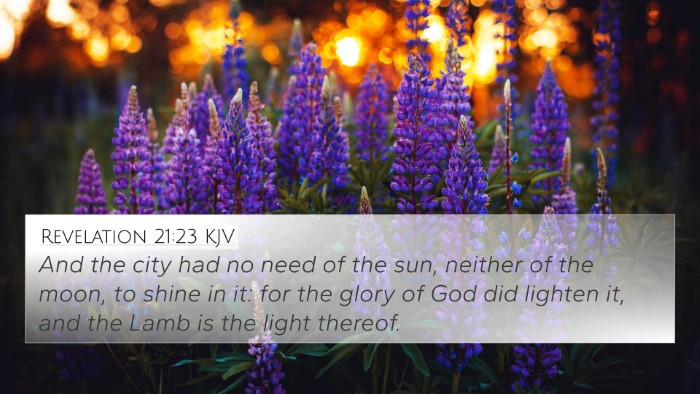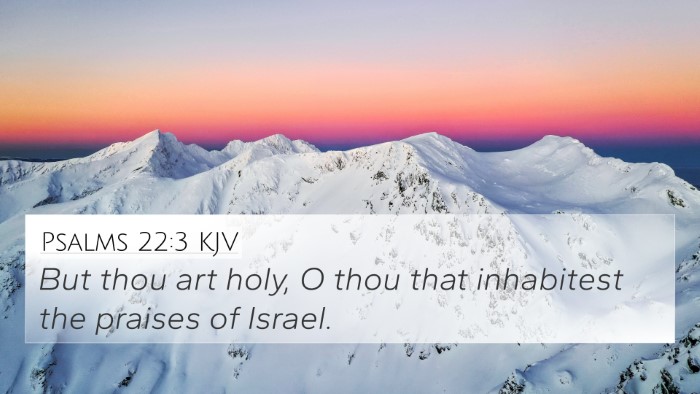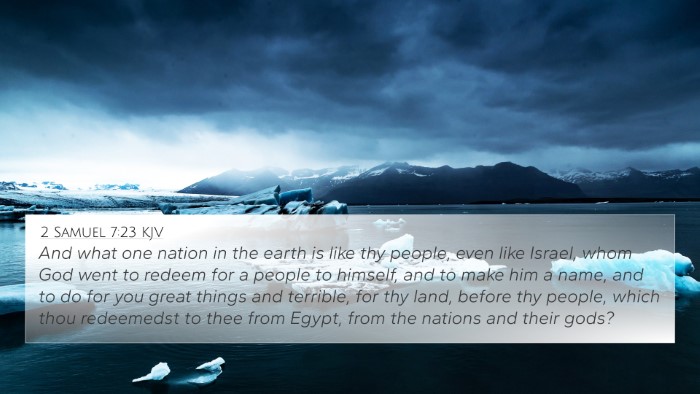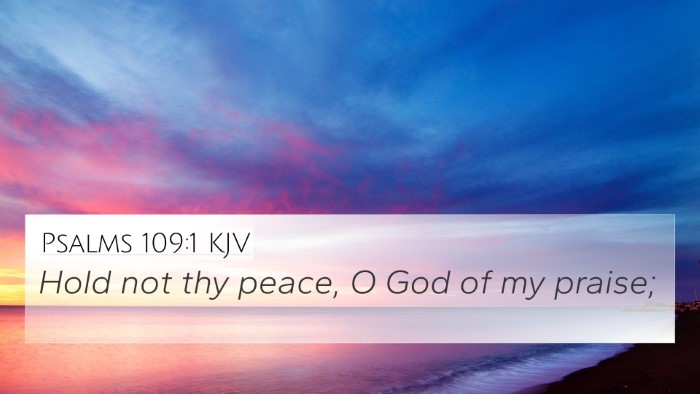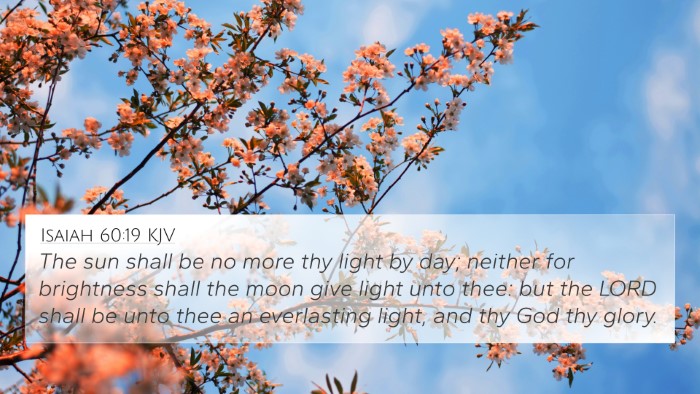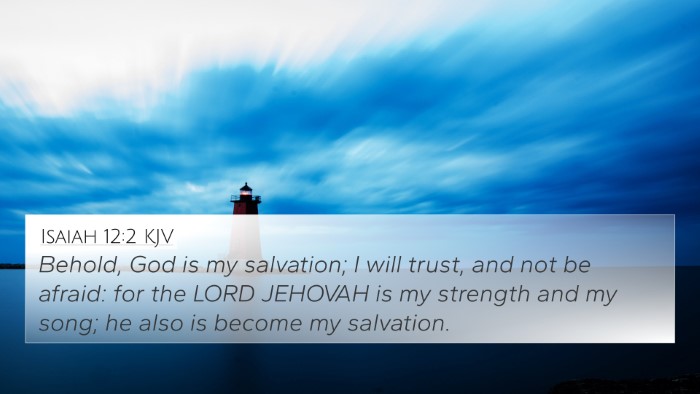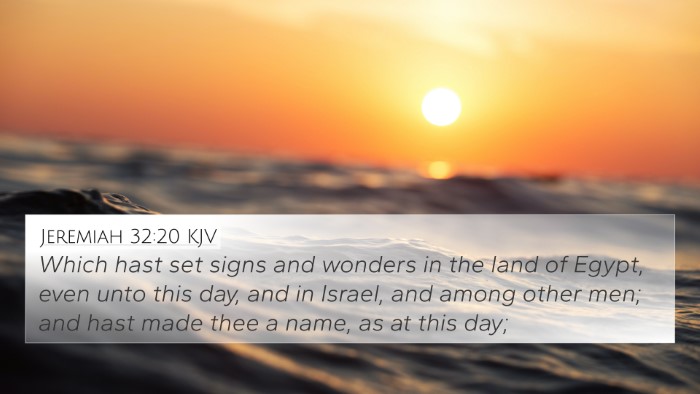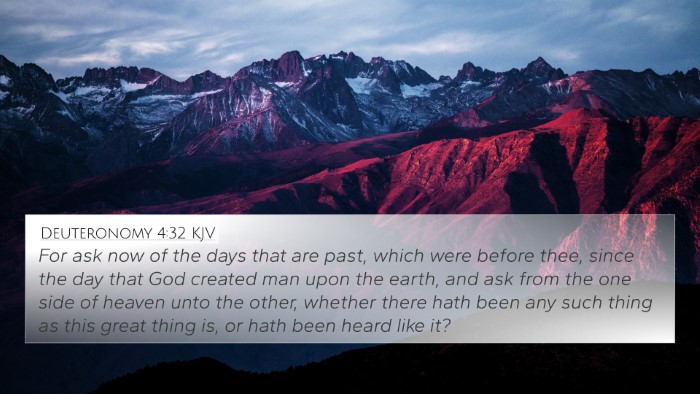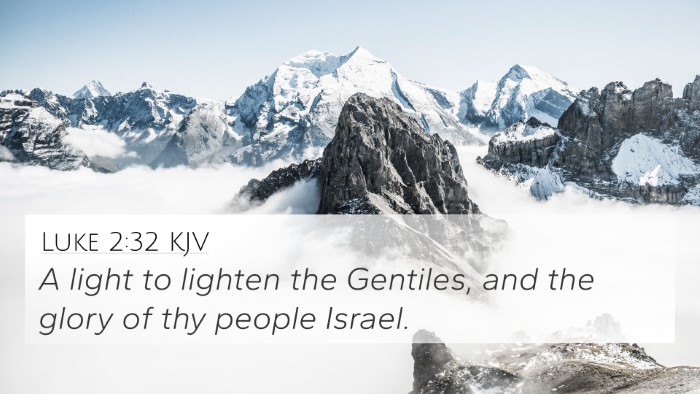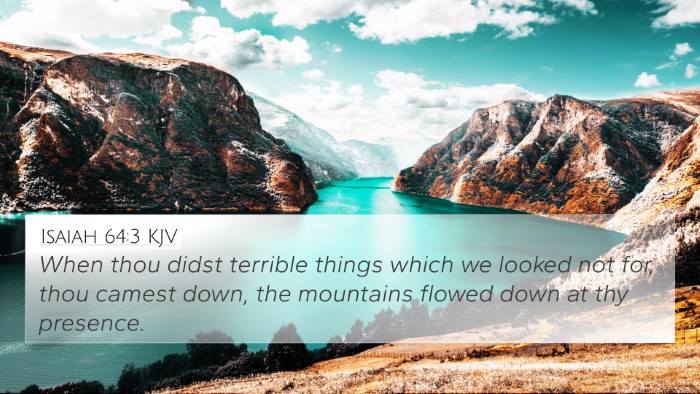Understanding Deuteronomy 10:21
Verse: "He is your praise, and He is your God, who has done for you these great and awesome things which your eyes have seen."
Summary of Insights
This verse emphasizes the significance of God's relationship with His people, highlighting His power and the miraculous deeds He has performed for them. It serves as a reminder that God should be acknowledged as both the source of praise and the embodiment of greatness, having engaged with His followers in ways that are not only visible but also transformative.
Commentary Insights
-
Matthew Henry's Commentary:
Henry underscores the importance of recognizing God as the foundation of praise among His people. He notes that God's actions are not merely historical; they are part of an ongoing relationship that calls for acknowledgment and reverence. God’s greatness is linked to the incredible acts He has performed for His nation.
-
Albert Barnes' Commentary:
Barnes points out that the phrase signifies both the honor that God deserves and the benefits His people receive. He interprets "He is your praise" as a call to worship and reflects on the central theme of God’s providence, which is evident in the lives of the Israelites. He implies that their experiences should lead them to a lasting gratitude toward God.
-
Adam Clarke's Commentary:
Clarke elaborates on the phrase by considering both its spiritual and practical implications. He emphasizes how the memory of God's deeds should instill confidence and promote faithful living among the Israelites. Clarke encourages believers to draw upon their individual and collective experiences of God's work as a source of deep praise and commitment.
Cross-References Related to Deuteronomy 10:21
-
Psalm 28:7: "The LORD is my strength and my shield; my heart trusts in him, and he helps me. My heart leaps for joy, and I will give thanks to him in song."
-
Psalm 100:4: "Enter his gates with thanksgiving and his courts with praise; give thanks to him and praise his name."
-
Isaiah 12:4: "In that day you will say: 'Give praise to the LORD, proclaim his name; make known among the nations what he has done, and proclaim that his name is exalted.'"
-
Romans 1:21: "For although they knew God, they neither glorified him as God nor gave thanks to him, but their thinking became futile and their foolish hearts were darkened."
-
2 Samuel 22:47: "The LORD lives! Praise be to my Rock! Exalted be God, the Rock, my Savior!"
-
Psalms 145:3: "Great is the LORD and most worthy of praise; his greatness no one can fathom."
-
Exodus 15:11: "Who among the gods is like you, LORD? Who is like you - majestic in holiness, awesome in glory, working wonders?"
Thematic Bible Connections
This verse is a focal point that links various themes throughout Scripture, including:
- Divine Providence: God's active involvement in human history and individual lives.
- Worship and Praise: The proper responses to God's greatness and miraculous acts.
- Historical Memory: The importance of remembering God's deeds as a foundation for faith.
- Community Gratitude: Recognizing that both individual and communal experiences shape our understanding of God.
Conclusion
Deuteronomy 10:21 serves as a reminder of the intimate relationship between God and His people, calling them to recognize His greatness and the acts of salvation that they have witnessed. Through thematic Bible study and cross-referencing biblical texts, believers can draw profound lessons from this verse, enriching their understanding of Scripture and enhancing their spiritual journey.
Additional Study Tools
- Bible Concordance: A tool for finding words and their occurrences throughout the Bible.
- Bible Reference Resources: Materials that help explain and connect Bible verses.
- Cross-reference Bible Study: Techniques for studying verses in relation to each other.
Exploring Further
For those interested in understanding how verses relate to Deuteronomy 10:21 or any other scripture, it is useful to consider:
- How to find and identify cross-references in the Bible.
- Comparative studies which illustrate the continuity between Old and New Testament themes.
- Using available resources for a deeper dive into scripture interpretation.
